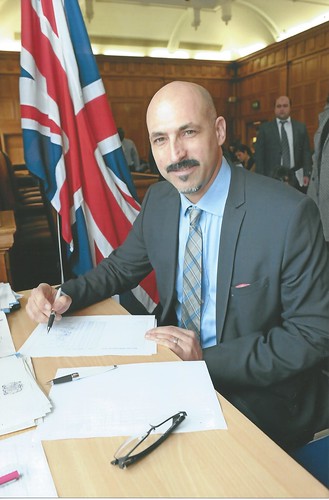In November on the day before Thanksgiving I officially joined your ranks. I now have dual citizenship here and in the US.
I wasn’t expecting this new status to make me feel any different about you, but the truth is that I do feel different.
I’m thankful. I’m inspired to be an active citizen. And I’m proud to be a member of your society which I respect and admire very much.
More than anything else it was the citizenship ceremony itself that changed the way I think about being British.
In particular, I was really struck by the language in the ceremony. They referred to free speech and democracy at the same level, interlocked and co-dependent. I wasn’t counting, but I believe there were more references to free speech and democracy than to either the Queen or God.
That resonated deeply with me, but it surprised me to hear it at the ceremony.
Before becoming a citizen I considered the British forms of free speech and democracy almost like methods for distributing and managing authority held at the core as opposed to true pillars and foundations of society.
For example, I don’t find it encouraging for future generations that a newspaper editor acting responsibly and clearly in the public interest should be called into a parliamentary hearing to defend his acts of journalism – and to declare his love for his country, bizarrely.
But I also know that this episode is the exception to the rule. Free speech and democracy run deeply through the veins of the British culture. And like everything else that is British, they are occasionally challenged in a very public way. (More on that in Part II.)
In the ceremony we are all told very clearly and specifically that being British means that we value free speech and democracy. What a wonderful command. I can get behind that.
I was also stuck by the multiculturalism represented in the ceremony itself. It’s one of the things I love most about London, but it was great to see multiculturalism so deeply woven into the naturalisation process. Not one of the organizers of the event was white, and it seemed likely based on their accents that none of them were born here, either.
What a great way to be welcomed into the country!
Thank you, Britain. I will do my best to make you proud.
